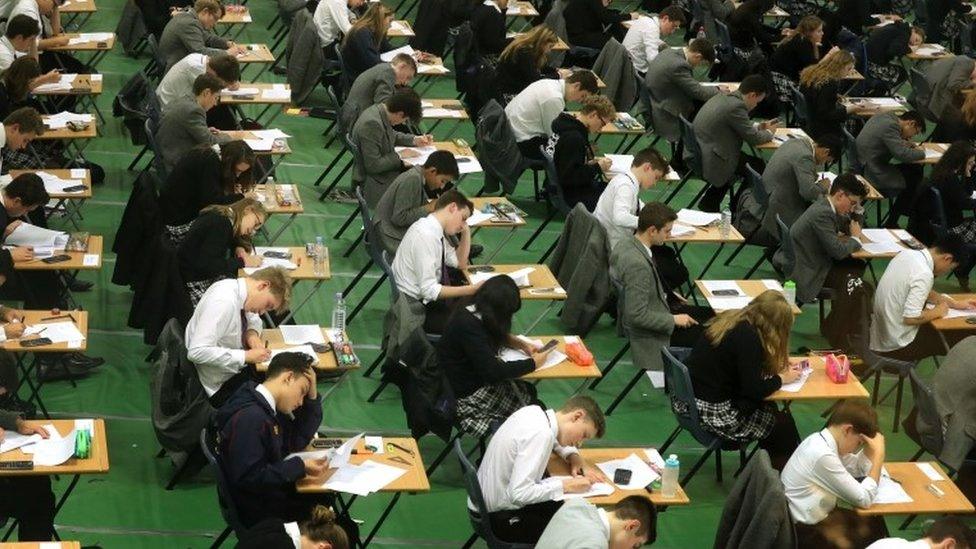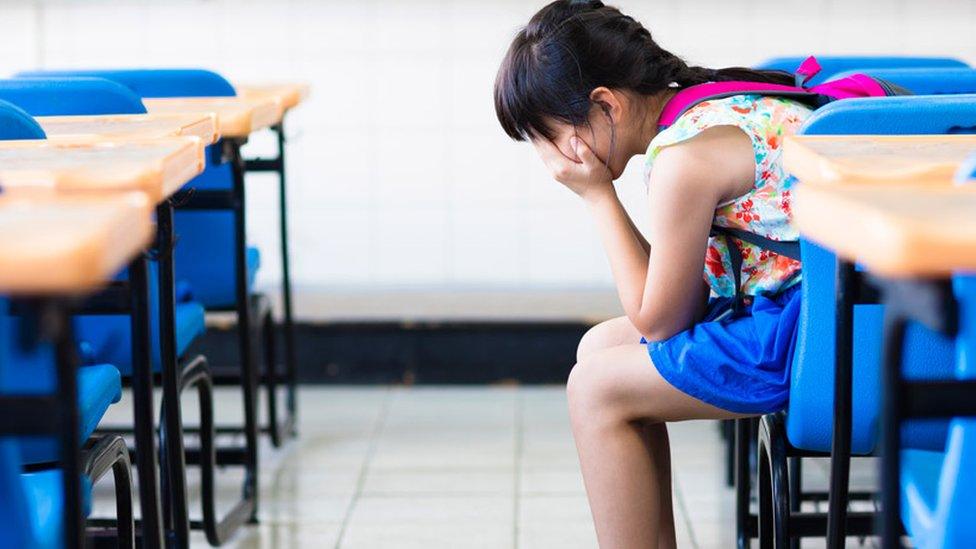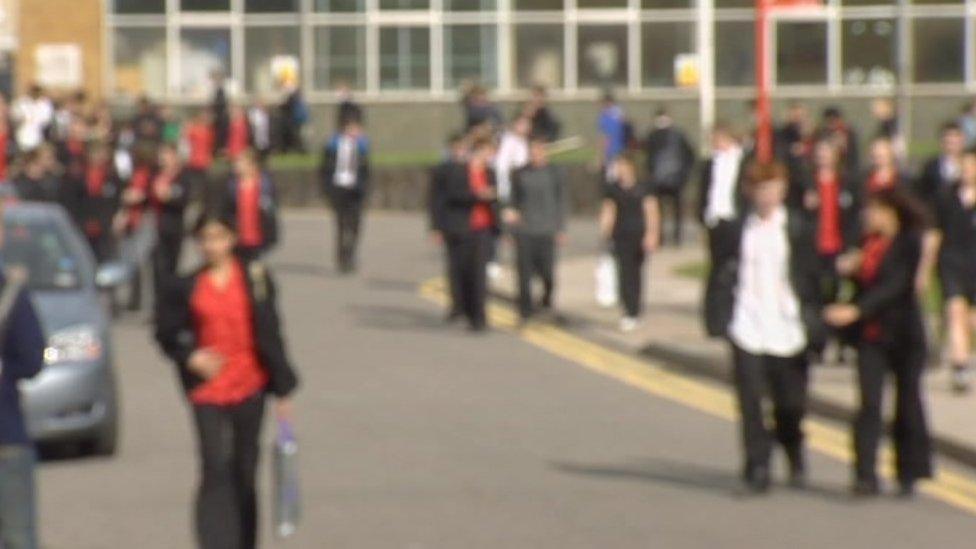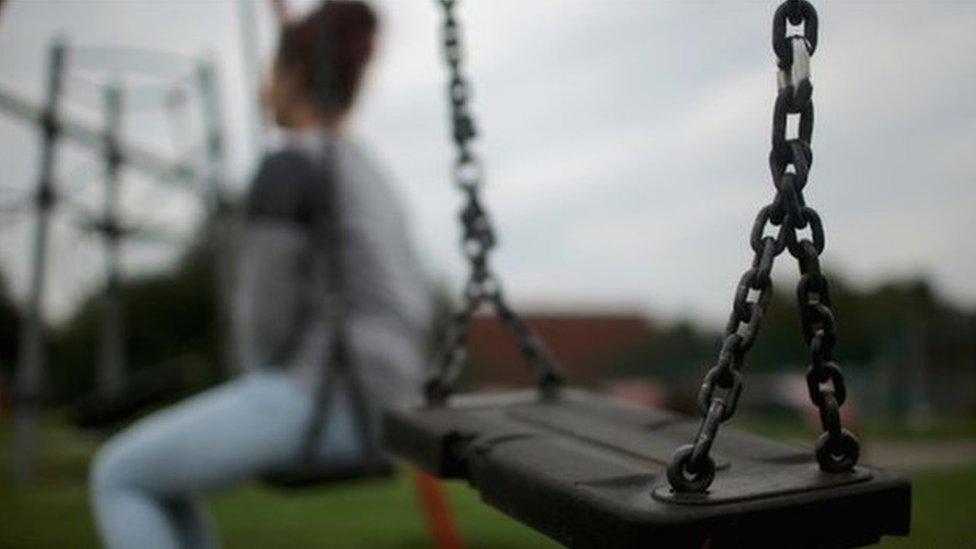Children in care doing better in GCSE exams
- Published

A total of 23% of children in care got five GCSEs including in core subjects, which is still lagging behind their peer group
There has been an improvement in the GCSE results of children growing up in care.
Latest figures show 23% of looked after children achieved the equivalent of five good grade GCSEs in English or Welsh and in maths in 2016.
That is up from 17% the year before.
Last year, the Welsh Government embarked on a three-year plan to raise ambitions and attainments for the children in care.
Education Secretary Kirsty Williams said research showed expectations were too often reduced for young people in care.
But she said the Welsh Government was taking action to face the issue "head on".
Developments include a new online hub, external to share information and resources focusing on children in care.
A progress report on the plan includes latest figures showing an improvement in GCSE results.
In 2016, 23% of children who were looked after achieved the equivalent of five GCSEs at grade A*-C in English or Welsh first language and mathematics, up from 17% from 2015.
This is more than double the proportion in 2011.
But the gap with teenagers as a whole taking the exams was still "unacceptable," said the report.
Last summer, a report by education standards body Estyn found children in care faced too many barriers for doing well in school.
Initiatives include an online hub to share information and resources focusing on children in care to help improve their educational outcomes, , externalcreated with Cardiff University's Casade social care research centre.
Other commitments include getting councils to review the roles of key workers.
Ms Williams said the aim was for all children to do well and reach their potential, whatever their background.
"Looked after children must have the same opportunities as their peers," she said.
"We have seen an excellent improvement in the GCSE results of those in care and we have committed more funding to build on this but I want to go further.
"Children often enter care from a background of family crisis or breakdown.
"While we cannot change their personal experiences, we will continue to support them through their education and prepare them for adulthood."
- Published5 July 2016

- Published11 November 2015

- Published29 June 2016
